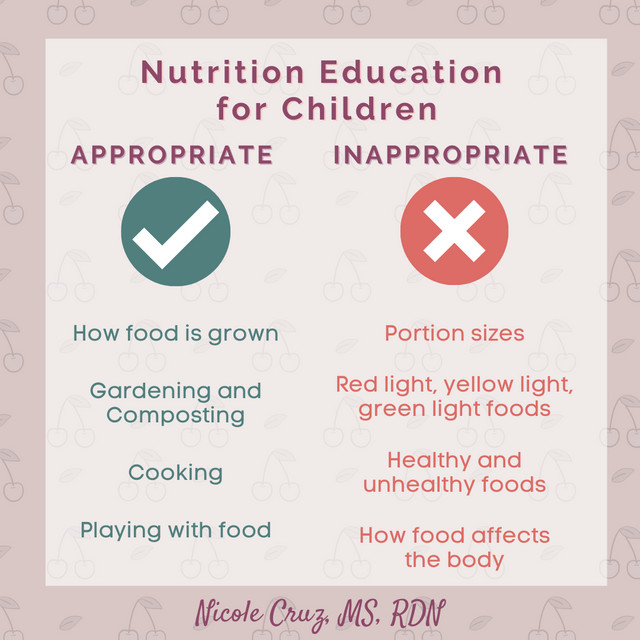

Children between the ages of 9 and 18 should have 2 to 3 cups of vegetables and 1½ to 2 cups of fruits each day. Children between the ages of 2 and 8 should have 1 to 1½ cups of vegetables and 1 to 1½ cups of fruits each day. Offer lots of vegetables and fruits every day.Encourage your child to drink water when he or she is thirsty. Remember that 3 ounces of meat is about the size of a deck of cards. Children between the ages of 9 and 18 should have 5 to 7 ounces of meat or meat alternatives each day. For example, children between the ages of 2 and 8 should have 2 to 3 ounces of meat or meat alternatives each day. Your child sees the choices you make and follows your example. Your own eating and lifestyle choices are a powerful teaching tool. Get healthy snacks that your child likes, and keep them within easy reach. If you are in a hurry, try cereal with milk and fruit, nonfat or low-fat yogurt, or whole-grain toast. Eating breakfast starts the process for using calories throughout the day. It helps your child stay at a healthy weight.

Have your child eat a healthy breakfast.Kids tend to accept new foods gradually, and their preferences expand over time. Don't worry if your child likes only one vegetable or one or two kinds of meats or fruits. Find at least one food from each food group that your child likes, and make sure it is readily available most of the time.This helps your child feel more in tune with his or her body. When your child's body is used to a schedule, hunger and appetite are more regular. Most children do well with three meals and two or three snacks a day. Set up a regular snack and meal schedule.You may find other ideas that work for your family, and you can add those to these lists. You can use some or all of the ideas below to get started. Don't let rules, pleading, or bargaining dictate your child's eating patterns. Help your children learn to eat slowly and recognize when they are full. Keeping this division of responsibility helps your child stay in touch with those internal cues. When we try to control how much children eat, we interfere with this natural ability. Young children are good at listening to their bodies. Your child chooses whether and how much to eat from the options you provide. You decide when, where, and what the family eats. How do you help your child learn healthy eating habits?


 0 kommentar(er)
0 kommentar(er)
